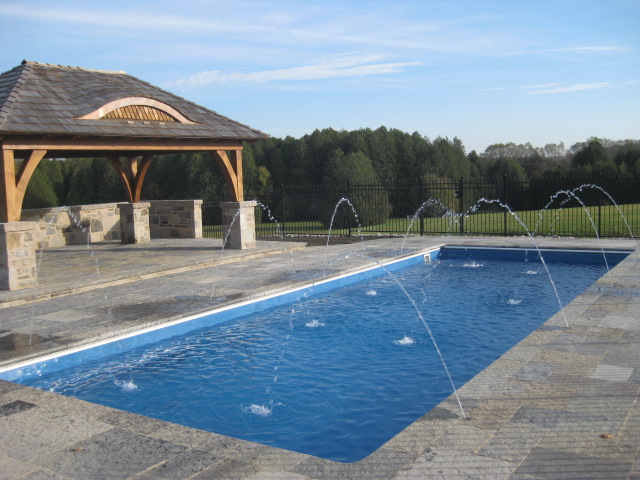Fiberglass pools are often considered cheaper to own compared to concrete or liner pools for several reasons:
- Lower Maintenance and Repair Costs: Fiberglass pools require less maintenance and incur lower repair costs over time. The smooth, non-porous surface of fiberglass makes it more resistant to algae growth, reducing the need for frequent brushing and chemical treatments. Additionally, the durability of fiberglass reduces the likelihood of cracks or leaks, minimizing repair expenses compared to concrete pools that may require resurfacing or liner replacements.
- Energy Efficiency: Fiberglass pools are known for their energy-efficient properties. The smooth surface of the fiberglass shell reduces friction, allowing water to circulate more easily. This means the pool’s filtration system and pumps don’t have to work as hard, resulting in lower energy consumption and reduced utility costs compared to concrete or liner pools.
- Reduced Chemical Usage: The non-porous surface of fiberglass pools makes it harder for contaminants to adhere to the pool walls, reducing the need for excessive chemical usage. This means fewer chemicals are required to maintain water balance, resulting in cost savings over time. Additionally, fiberglass pools typically use smaller filtration systems, requiring fewer chemicals to achieve the desired water quality.
It’s worth noting that the cost comparison between different pool types can vary based on factors such as the region, pool size, local labor costs, and specific features and options chosen for the pool.



